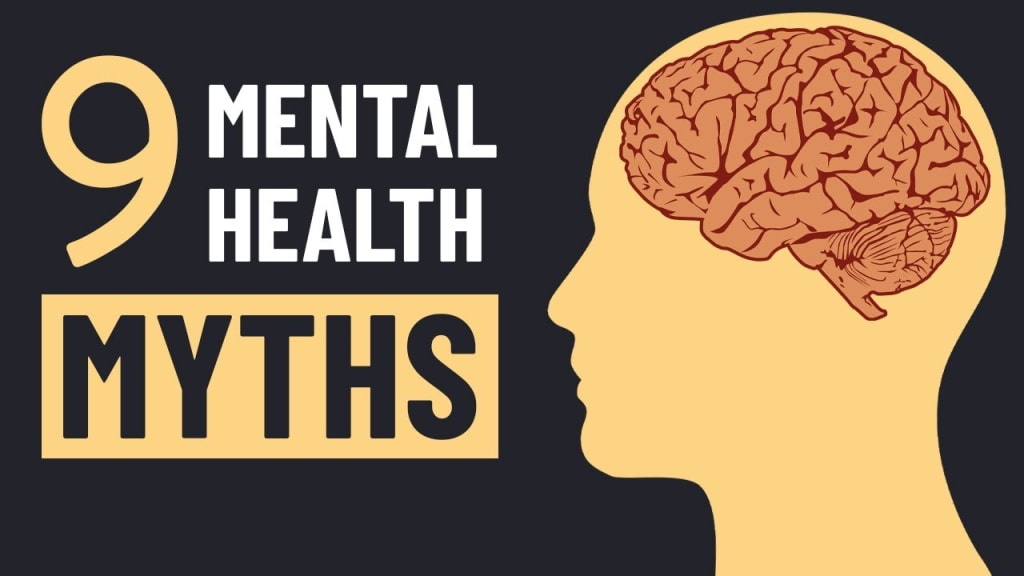9 Mental Health Myths You Probably Still Believe
Not that long ago, mental illnesses and disorders were considered taboo subjects. People were extremely hesitant to discuss these topics or their own mental health issues. As a result, there were a lot of misunderstandings concerning mental disorders. And since exaggerated stories and severe cases were frequently featured in the media, it further fueled the stigma surrounding them. There has been some progress, but there are still a number of misconceptions about mental illness that many people hold to be true.

9 Mental Health Myths You Probably Still Believe
Not that long ago, mental illnesses and disorders were considered taboo subjects. People were extremely hesitant to discuss these topics or their own mental health issues. As a result, there were a lot of misunderstandings concerning mental disorders. And since exaggerated stories and severe cases were frequently featured in the media, it further fueled the stigma surrounding them. There has been some progress, but there are still a number of misconceptions about mental illness that many people hold to be true. And while these common misunderstandings may appear harmless, they promote dangerous stereotypes that prevent some individuals from receiving the help and support they need. This can leave them struggling on their own and internalizing negative beliefs about mental illness that can exacerbate their issues. So let’s debunk some of these myths in an attempt to lessen the stigma and encourage people to seek treatment.
Number 1 - Everyone with A Mental Illness Is Crazy Labeling people with terms such as crazy, or insane, is not only hurtful and insensitive, but it contributes to the perpetuation of traditional stereotypes. It just propagates the idea that mental illness is unpredictable, uncontrollable, and always severe. In reality, mental illness and mental health disorders fall on a wide spectrum. They can range from moderate to severe and can even come and go. These terms are also frequently associated with psychotic symptoms such as hallucinations and delusions, but these symptoms are generally only prevalent in certain mental health disorders.
Number 2 - Mental Illnesses and Disorders Are Extremely Rare Mental illness is actually more common than people realize. In fact, 1 in 5 Americans experience a mental health problem each year. While psychotic disorders such as schizophrenia are thought to affect fewer than 1% of the U.S. population, other mental health disorders are more prevalent. For example, an estimated 19% of Americans suffer from anxiety disorders each year; around 8.4% have depression, and 2.8% suffer from bipolar disorder.
Number 3 - Mental Illnesses Make People Violent Misconceptions concerning mental illness also include the assumption that everyone suffering from mental health disorders is aggressive and dangerous. While mental illness can increase the likelihood of violence in some individuals, only around 3 to 5% of violent acts can be linked to people with a severe mental illness. In fact, those with a severe mental illness are over 10 times more likely than the average person to be victims of violent crime.
Number 4 - Children and Teens Don’t Experience Mental Illness This couldn't be further from the truth. Even very young children can display early warning signs of mental health issues. These problems are often clinically diagnosable and can result from biological, psychological, and social factors. Around half of all mental health disorders show first signs before the age of 14, and three-quarters of all mental health disorders begin before the age of 24. And while early support can lessen the severity of the illness and related issues such as trouble in school and substance abuse, the unfortunate reality is that fewer than 20% of children and adolescents receive the treatment they need.
Number 5 - People with Mental Illness Can’t Function in Society Another common myth about mental illness is that it makes people unable to function in society. But contrary to popular belief, not everyone with a mental illness is homeless or institutionalized. While certain mental health disorders can be especially crippling, the majority of those who suffer from mental illness are still productive members of society and are, in fact, employed. Mental illness doesn't stop most people from working, and holding down a job can actually improve their health and overall quality of life.
Number 6 - Mental Health Problems Are a Sign of Weakness This is perhaps one of the most damaging misconceptions about mental illness. Mental disorders are medical conditions just like physical health problems such as diabetes and heart disease. They are brought on by various factors, including genetics, the environment, and life experiences such as trauma. So, if anything, the opposite is true. Dealing with a mental health problem requires a tremendous amount of inner strength and resilience.
Number 7 - You Can't Get Better If You Have a Mental Illness It is a widely held belief that if someone suffers from a mental illness, they are doomed for the rest of their lives. But this is simply not the case. Even though certain mental disorders are chronic, treatment can help people learn to better manage their symptoms and gain more control over their condition. In some instances, proper treatment can help people almost entirely overcome it. Other mental health disorders, by their very nature, can be short-term and go away over time.
Number 8 - Treatment Is Scary Various misunderstandings regarding treatment have risen as a result of media portrayals — as well as historical approaches — which might make some people afraid to seek help. However, treatment today doesn’t involve such horrific procedures. It often entails a combination of therapies such as psychotherapy and if necessary, medication, tailored to the individual to avoid adverse reactions. Furthermore, most patients have free rein inside residential mental health facilities and are there voluntarily.
Number 9 - There's Nothing I Can Do to Help Someone with Mental Illness Because of this misconception, more than half of those affected by mental illness do not get the treatment they require. But friends and family can be significant influences. And you can help someone by reaching out and letting them know you're there for them, and by assisting them to access mental health services. Learning about and sharing mental health information can be very beneficial as well. There’s a high likelihood that you or someone you know will be affected by a mental health issue at some point. Everyone deserves support to overcome these challenges, and misunderstandings about mental illness should not stand in the way. Don't be afraid to seek help. Mental illness is not something to be ashamed of or embarrassed about. Being aware of mental health issues and understanding the truth can help you and those around you. Moreover, it can save lives.
About the Creator
Enjoyed the story? Support the Creator.
Subscribe for free to receive all their stories in your feed. You could also pledge your support or give them a one-off tip, letting them know you appreciate their work.






Comments
There are no comments for this story
Be the first to respond and start the conversation.